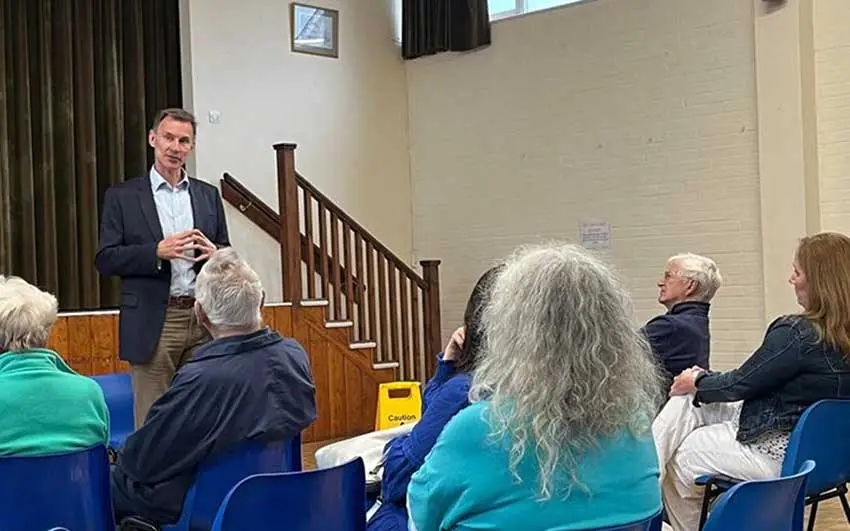Chancellor Jeremy Hunt has stressed the importance of having a strong opposition in Parliament if Labour emerges victorious in the upcoming general election. His comments come amidst growing concerns within the Conservative Party over a potential Labour landslide.
Hunt’s remarks follow a series of warnings from senior Conservatives about the risks of Labour gaining unchecked power. The possibility of a split centre-right vote has become a significant talking point as the elections approach.
Senior Tories Acknowledge Potential Defeat
In recent weeks, senior Conservatives have increasingly acknowledged the potential for their party to face defeat in the upcoming general election. Work and Pensions Secretary Mel Stride mentioned that opinion polls indicate Labour could achieve “the largest majority virtually in the history of this country.”
Last week, Grant Shapps also cautioned against giving Labour a “supermajority”, which he warned could lead to unchecked power. This sentiment echoes concerns about maintaining a balanced political environment, even if Labour wins.
Concerns Over Splitting the Vote
The Conservative Party is experiencing a notable loss of support to Reform UK. Senior figures have repeatedly warned that voting for Nigel Farage’s party could split the centre-right vote, ultimately benefiting Labour.
Prime Minister Rishi Sunak remains hopeful for a Conservative victory, despite many candidates privately conceding that a win is unlikely. Conservative candidates are now focused on minimising Labour’s potential majority.
Public Acknowledgement of Strategic Shift
The strategic shift among Conservative candidates has only been publicly acknowledged by senior Tories in the past week.
Hunt, in an interview with BBC economics editor Faisal Islam, was asked if discussing a Labour “supermajority” meant the Tory campaign had faltered. He responded, “I think it’s very important if Labour win, that they have an effective opposition in Parliament.”
Battle for Godalming and Ash
Jeremy Hunt, contesting the newly formed seat of Godalming and Ash in Surrey, admitted to facing a “knife-edge” battle against the Liberal Democrats.
In the 2019 election, Hunt held a majority of 8,817 in his previous seat of South West Surrey. He now faces a more challenging contest in the newly established constituency.
Hunt’s Appeal to Voters
Addressing voters, Hunt said, “If you vote for Reform, Reform aren’t going to win but the Lib Dems will win. You will have fewer centre-right MPs and fewer MPs who want to control migration, fewer MPs who want to reduce tax, and that isn’t what those voters want.”
The candidates for the Godalming and Ash constituency are: Reform UK: Graham Drage, Liberal Democrat: Paul Follows, Conservative: Jeremy Hunt, Green: Ruby Tucker, Labour: James Walsh, Women’s Equality Party: Harriet Williams.
Labour’s Rising Confidence
Labour is increasingly confident about securing a significant majority in the upcoming election. The party aims to capitalise on the apparent division within the centre-right vote.
This concern is magnified by the warnings from senior Conservatives regarding the potential consequences of a split vote. Labour’s strategy appears to be benefiting from this internal discord within the Conservative ranks.
A potential Labour supermajority could drastically alter the political landscape, bringing about significant policy changes.
Future Implications
The outcome of the upcoming general election holds significant implications for the UK’s political future. The possibility of a Labour supermajority raises questions about the direction of future policies.
Jeremy Hunt and other senior Conservatives have emphasised the need for an effective opposition to ensure balanced governance.
The broader political discourse is now focused on preventing any single party from gaining unchecked power, highlighting the importance of maintaining a robust and balanced parliamentary system.
In summary, Jeremy Hunt’s call for an effective opposition underscores the crucial role of balanced governance in Parliament. His message resonates amidst growing concerns over the potential for a Labour supermajority.
As the UK approaches the general election, the political landscape remains tense, with significant implications for the future direction of government policies.


